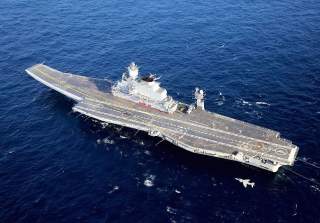Is India Losing Russia?
The two countries still share values, as well as interests.
Given how central Nehru was to Indian politics, and his ability to shape the political discourse in the country, this sense of admiration for the USSR struck root in the Indian body politic. Bilateral relations based on expediency as well as values lived on, even after his death. As a result, when tensions did emerge between them, as was the case in the 1960s, the “glue” that bound India and Russia at a foundational level ensured that the drift was not permanent. The relationship encompassed the state and society on both sides. A dynamic that encompassed values ensured that things could be brought back on track should the narrower self-interest component of the relationship suffer.
International-relations scholars like Ian Hurd have pointed out that relations based purely on self-interest last as long as clear benefits accrue to the parties concerned. According to Hurd, “Actors are constantly recalculating the expected payoff to remaining in the system and stand ready to abandon it should some alternative promise greater utility.” Such relationships have a tendency to “defect” or have revisionism built into them. However, relationships based on something more than self-interest can check the tendency towards revisionism.
It is but natural that once the Cold War generation fades in India, the attraction and pull towards Russia and its ideals will also weaken. It would not be inaccurate to say that the current generation of Indians is much less enamored with Russia than the previous generation, which grew up in the Cold War years. In fact, the United States seems to have a greater following among the new generation of Indians than does Russia. According to a Pew Research Center survey conducted in 2015, 70 percent of Indians who were polled viewed the United States favorably, with 75 percent of those in the age bracket of 18–29 seeing the United States in a positive light. Russia trailed the United States, with 43 percent of Indians seeing it in a positive light. While 8 percent of Indians polled viewed the United States in a negative light, twice as many—16 percent—viewed Russia in a negative light.
Should decisionmakers in New Delhi and Moscow want to ensure that the bilateral relationship is not endangered significantly, they need to examine its softer, ideational element. To what extent do values still underpin bilateral relations, and what is the extent of the erosion of values? They need to identify and inject elements into the relation that will buttress the dimension of self-interest with a value-based one. The challenge is made greater given that socialism is no longer the principal vocabulary in the relationship. Some have argued that in order to maintain the health of bilateral relations, scientific and technological relations have to be deepened, joint manufacturing given a boost, and a convergence of views on terrorism put in place. Whether these measures will be sufficient to sustain India-Russia ties in the twenty-first century needs to be pondered.
Should one doubt the efficacy of values in the politics among nations, given the depiction of international relations as the domain of amoral and self-interested conduct in the shadow of anarchy, one ought to pay heed to Henry Kissinger, and the arch-realist’s reasoning for the success of the Concert of Europe system. The Concert system was inaugurated in 1815, in the aftermath of the drawn-out French Revolutionary and Napoleonic wars. It consisted of dialogue and negotiation among the great powers, a commitment to the status quo based on conservative values, and modifications of boundaries based on discussion and not the unilateral use of force. It is believed that the absence of systemwide great-power wars barring the Crimean War was due to the Concert system. In the face of increasing offensive capabilities of nations spurred on by the Industrial Revolution; leaders who accepted risk and were interested in pushing the limits of the status quo, such as Czar Nicholas I; and the slow onset of nationalism across Europe, peace in Europe largely held. This was no mean feat.
Kissinger argues in his book Diplomacy that even though the Concert was created in the name of the balance of power, it relied shared values among the great powers. According to him, “There was not a physical equilibrium but a moral one.” The power and value-based components of the Concert system was propped up by two separate arrangements: the Quadruple Alliance and the Holy Alliance. While the first alliance was based on balance of power principles, the second addressed the moral dimension of the Concert system and used religion as a glue to bind the great powers together. The British were not impressed with the Holy Alliance, with Lord Castlereagh referring to it as “a piece of sublime mysticism and nonsense.” Notwithstanding this, it is believed that the Concert system managed to avert great-power wars for almost a century thanks to its two dimensions: self-interest based on balance-of-power calculations, and values. The injection of values through the Holy Alliance had the role of checking revisionist tendencies among the great powers, which was not only dependent on the accrual of benefits.
The fact that India-Russia relations will face setbacks is inevitable. Whether the setbacks will be seen as aberrations, or whether they will herald a sustained drift, will in many ways be determined by the salience of shared values between the two nations.
Nabarun Roy is Assistant Professor at the Department of International Relations at the South Asian University, New Delhi, India. He obtained his PhD from Carleton University, Ottawa. He focuses on theories of international relations, great power politics, Indian foreign policy and the geopolitics of Asia.
Image: INS Vikramaditya with a Sea Harrier. Wikimedia Commons/Creative Commons/Indian Navy

